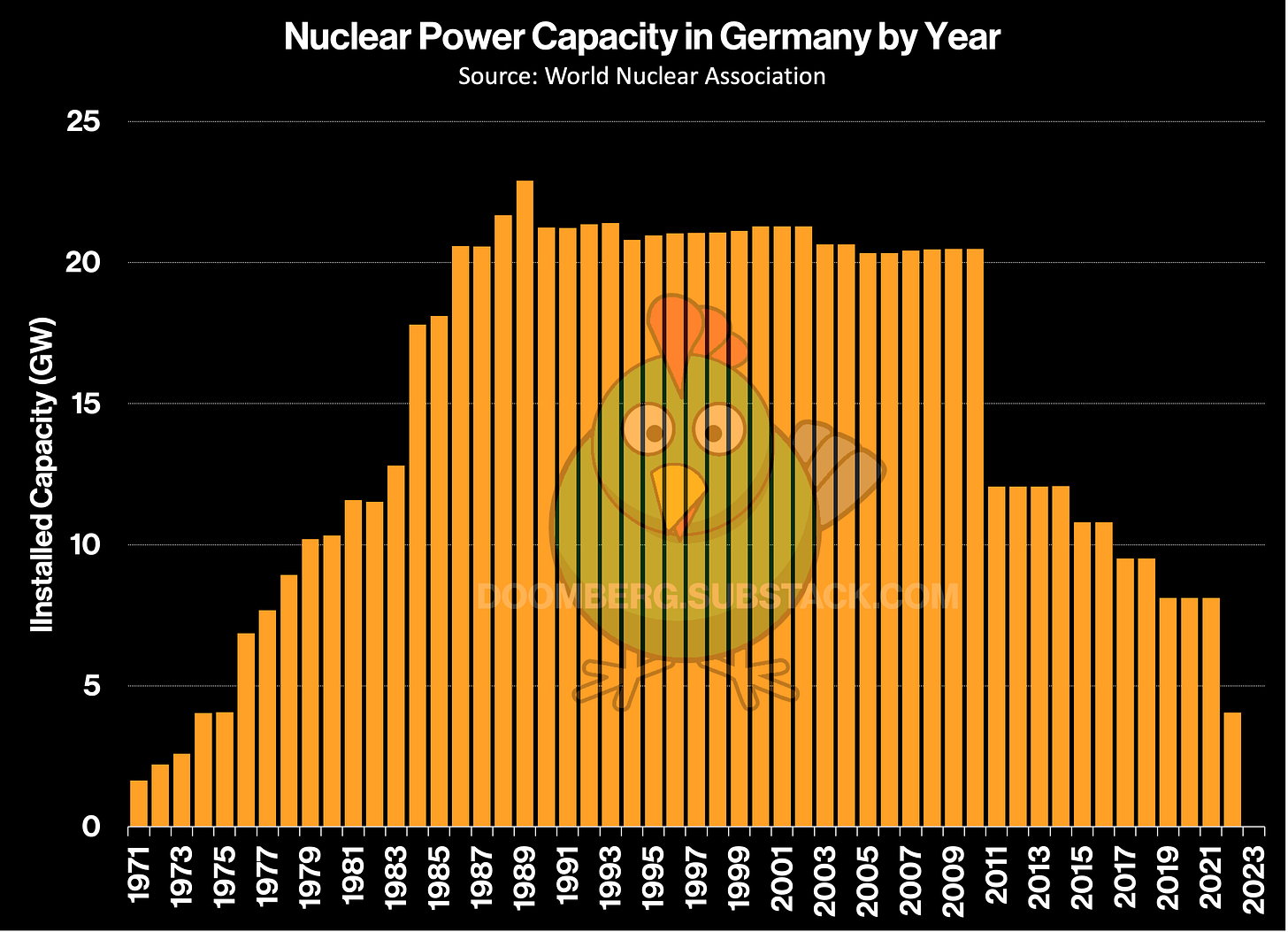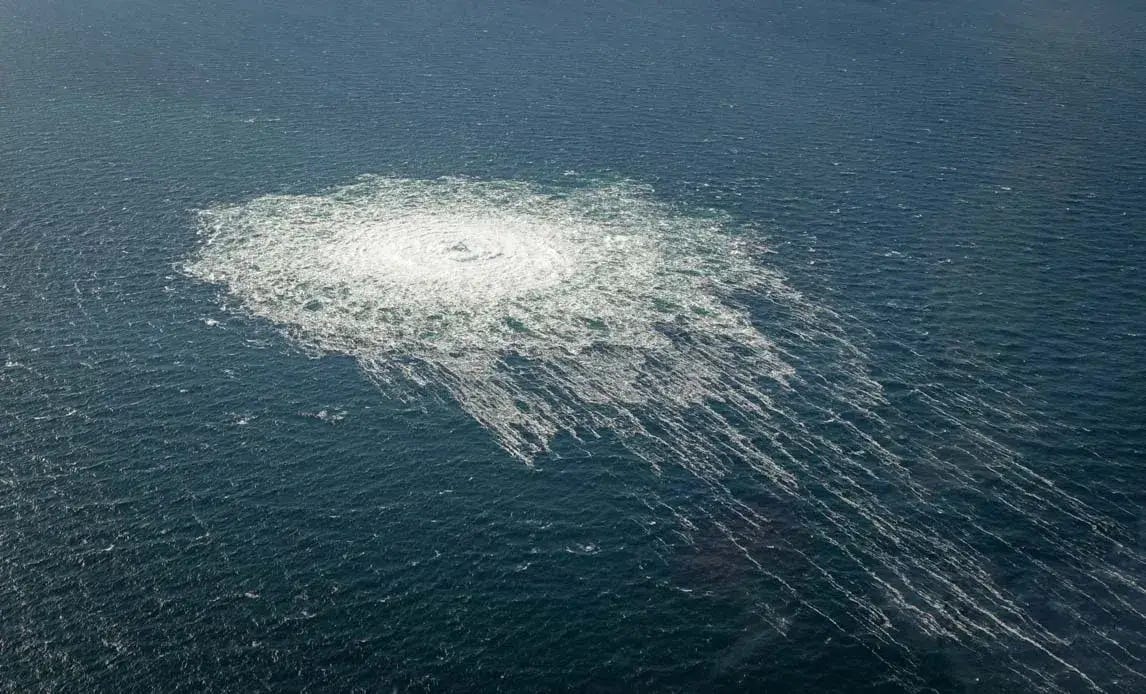Full Circle
Germany is a case study in climate insanity taken to its inevitable endpoint.
“My neighbor has a circular driveway... he can't get out.” – Steven Wright
Germany’s national energy strategy is one of the great mysteries of our time. The country discharges less than 2% of global carbon emissions, and yet the elite within its establishment have nonetheless embarked on what amounts to an economic suicide mission—hellbent as they are on saving the planet by example. Never mind that the rest of the world will happily absorb every gram of fossil fuels Germany pretends to be temporarily abating, or that the country will inevitably burn more fossil fuels as it regresses from the brink of intellectually empty platitudes to the harsh realities of physics.
Among the most illogical moves made by the ruling class has been the proactive dismantling of 22 GW of the world’s best-run nuclear reactors. With nuclear power plants running at 90% capacity factors or better, Germany was once capable of churning out nearly 170 terawatt-hours per year of carbon-free baseload power, an enviable anchor that served as one of two economic foundations for its once impressive manufacturing sector.
The other economic bedrock was, of course, cheap natural gas from Russia. Here, German leaders can be at least partially forgiven for forfeiting this energy artery, as they likely had few choices once Putin’s troops crossed into Ukraine. What is more difficult to comprehend is the complete silence from German leadership on the topic of culpability for the destruction of the Nord Stream pipelines. Reporter Seymour Hersh has famously (and controversially) accused the Biden administration of being responsible, and each month that passes without a credible story to negate this hypothesis lends plausibility to his original reporting. He returned to the topic last week (emphasis added throughout):
“Nothing more about the cause of the underwater bombings has been heard since from either Sweden or Denmark, although both nations knew, as I have written, that the US was practicing underwater diving in the Baltic Sea for months before the explosions. The failure of the two nations to complete their inquiry may have stemmed from the fact, as I was told, that some senior officials in both countries understood precisely what was going on…
There is no evidence that President Biden, in the sixteen months since the pipelines were destroyed, has ‘tasked’—a word of art in the American intelligence community—its experts to conduct an all-source investigation into the explosions. And no senior German leader, including Chancellor Olaf Scholz, who is known to be close to President Biden, has made any significant push to determine who did what. A subsequent investigation sought by some members of the Bundestag, Germany’s parliament, was undertaken but its conclusion has been withheld from the public for what are said to be security reasons.”
With limited access to natural gas, no nuclear reactors in operation, and a large fleet of intermittent wind and solar assets that do little for reliable baseload power, Germany retreated to the use of coal on a massive scale to survive the past two winters. To paper over this obvious climate absurdity, the ruling coalition vowed to accelerate its previously planned total exit from coal to 2030 from 2038, pinky swearing that this time they really mean it.
Last week, German leaders made a significant announcement to address a portion of their no-coal commitment by expanding the country’s footprint of gas-fired power plants. Should these investments be dismissed as just another spasm of folly or is there a deeper lesson that can be culled from this self-induced mess? At the risk of indulging in a bit of schadenfreude, let’s contextualize the numbers and ponder the ramifications for the rest of us.



